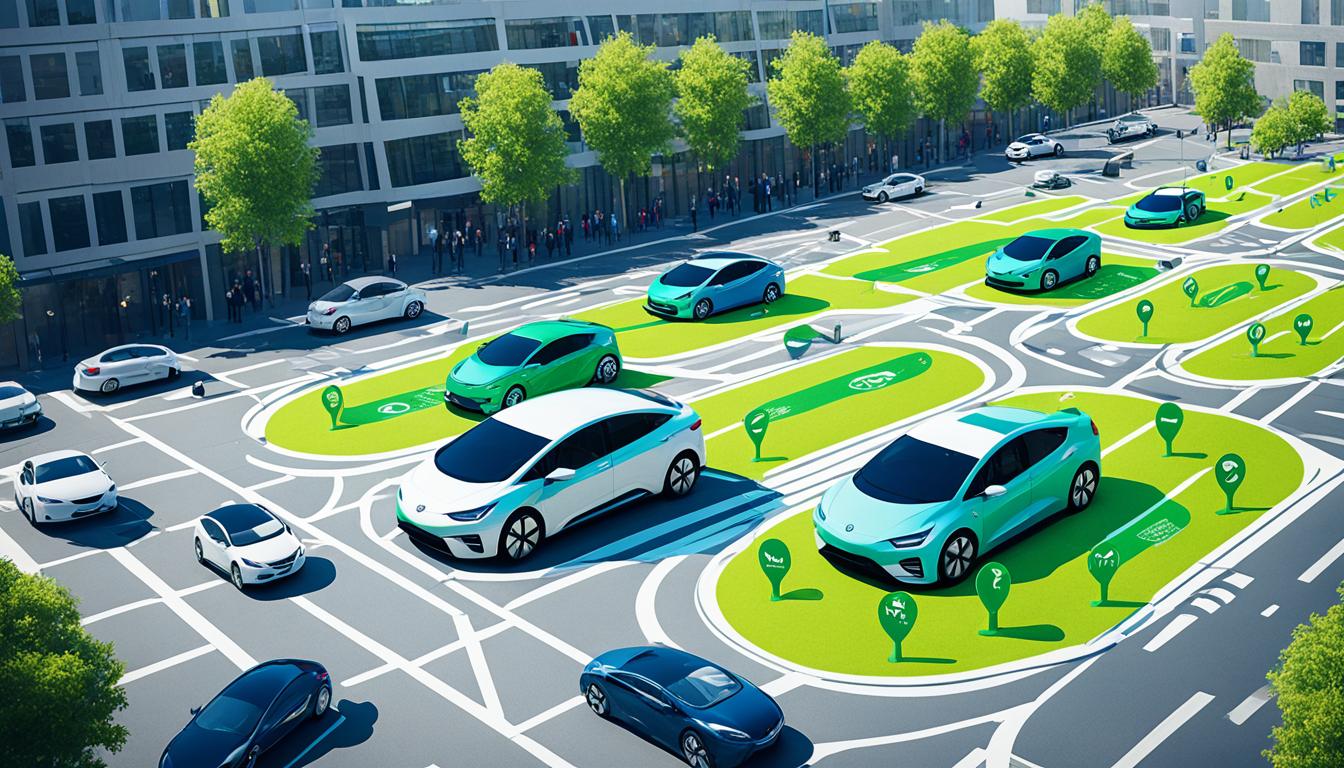
Sharing is Caring: How Car Sharing Technology is Changing Transportation
Car sharing technology is revolutionizing the way we travel, transforming the transportation industry as we know it. The rise of ride-sharing services and car-sharing platforms has provided individuals with more flexible and affordable options for getting around. This innovative technology not only improves personal transportation but also has the potential to save costs and reduce our carbon footprint.
From bustling urban areas to remote rural communities, car sharing technology is making transportation more accessible, efficient, and environmentally friendly. It offers a solution to some of the challenges associated with owning a personal vehicle, such as high costs, maintenance, and limited parking spaces. By embracing car sharing technology, we can unlock a world of possibilities and embrace a more sustainable way of getting from point A to point B.
Key Takeaways:
- Car sharing technology is transforming transportation by providing flexible and affordable options.
- It offers convenience, cost-effectiveness, and the ability to choose the right vehicle for each trip.
- Car sharing reduces our carbon footprint by promoting the use of electric and hybrid vehicles.
- The future of car sharing technology includes autonomous vehicles and integration with smart city infrastructure.
- By embracing car sharing, we can create a more accessible, efficient, and sustainable transportation system.
The Benefits of Car Sharing Technology
Car sharing technology offers numerous benefits to both individuals and communities. Firstly, it provides a convenient and cost-effective alternative to owning a personal vehicle. Users can access a car when needed without the hassle of maintenance, insurance, and parking costs.
Additionally, car sharing allows for greater flexibility, as users can choose the type of vehicle that suits their needs for each trip. Whether it’s a small electric car for shorter trips or a larger vehicle for family outings, car sharing platforms offer a wide range of options.
The use of electric and hybrid vehicles in car sharing programs also contributes to a more sustainable transportation system by reducing greenhouse gas emissions and promoting cleaner energy sources.
“Car sharing technology provides a convenient, cost-effective, and flexible transportation solution, while also contributing to a more sustainable future.”
To further illustrate the benefits of car sharing technology, here is a table showcasing its advantages:
| Benefits | Description |
|---|---|
| Convenience | Access to a car without the responsibilities of ownership |
| Cost-effective | Savings on maintenance, insurance, and parking expenses |
| Flexibility | Choose the right vehicle for every trip |
| Sustainability | Reduced greenhouse gas emissions through the use of electric and hybrid vehicles |

The Future of Car Sharing Technology
The future of car sharing technology looks promising, with advancements in autonomous vehicles and the integration of smart city infrastructure. As autonomous vehicles become more prevalent, car sharing platforms can leverage this technology to provide on-demand transportation services without the need for a human driver. This could lead to increased efficiency and reduced costs for both users and service providers.
In addition, the integration of car sharing technology with smart city infrastructure has the potential to create a seamless and interconnected transportation network. Through the use of data analytics and real-time information, users can easily find available vehicles, plan optimal routes, and make informed decisions about their travel.
The future of car sharing technology holds immense potential to further enhance the accessibility, efficiency, and sustainability of our transportation systems. By integrating autonomous vehicles and leveraging the power of smart cities, car sharing platforms can offer convenient and eco-friendly solutions for the challenges of urban mobility.
FAQ
How does car sharing technology work?
Car sharing technology allows users to access a vehicle when needed through a mobile app or website. Users can locate and book available cars, unlock them using the app, and pay for the time they use. It’s a convenient and flexible alternative to owning a personal vehicle.
What are the benefits of car sharing?
Car sharing offers several benefits. Firstly, it’s a cost-effective alternative to owning a personal vehicle, as users only pay for the time they use. It also eliminates the hassle and expenses of maintenance, insurance, and parking. Additionally, car sharing allows for greater flexibility, as users can choose the type of vehicle that suits their needs for each trip.
How does car sharing technology contribute to sustainability?
Car sharing technology promotes sustainability by reducing the number of private vehicles on the road. With fewer cars on the road, there is less traffic congestion and lower emissions of greenhouse gases. Car sharing platforms also encourage the use of electric and hybrid vehicles, which further reduces carbon emissions and promotes cleaner energy sources.
Is car sharing technology available in all areas?
Car sharing technology is becoming more widespread, but its availability may vary depending on the location. It is more common in urban areas where there is higher demand. However, car sharing platforms are expanding their services to include rural communities as well, making transportation more accessible for people living in those areas.
What is the future of car sharing technology?
The future of car sharing technology looks promising. With advancements in autonomous vehicles, car sharing platforms can leverage this technology to provide on-demand transportation services without the need for a human driver. This could lead to increased efficiency and reduced costs. Furthermore, the integration of car sharing technology with smart city infrastructure has the potential to create a seamless and interconnected transportation network, enhancing accessibility and efficiency.
Source Links
- https://finance.yahoo.com/news/multiplan-corporation-nyse-mpln-q4-145856116.html
- https://www.rochesterfirst.com/news/business/ap-lobster-catch-dips-to-lowest-level-since-2009-as-fishers-grapple-with-climate-change-whale-rules/
- https://www.irishtimes.com/sport/rugby/2024/03/01/urc-previews-struggling-ulster-need-win-against-dragons/
